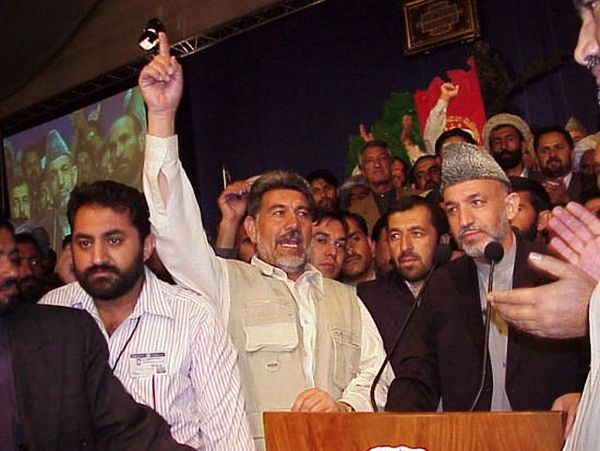One way Afghanistan could end up in a handbasket
This week, my graduate students at the New School ran a simulation of the coming year in Afghanistan. I kept the parameters loose and tracked the scenario closely to reality. (I’ve attached a list of the roles assigned at the end of this post.) They began in the present, April 2010, tasked with finding a way to minimize the amount of casualties and political instability before the summer. In a second round of play, set in July, the scenario stipulated that ISAF had invaded Kandahar without conclusively wresting control of the city from the Taliban. In the final round of play, set in October, the US was tasked with trying to usher in a settlement between the Afghan government and the insurgency.
Keep in mind that it’s only a game, but the results surprised me:
- India and Pakistan reached secret agreements over trade routes and insurgent funding.
- In the game, the U.S. played the most active role in brokering settlements between competing Afghan factions.
- Prompted by payments from the U.S., unsuccessful presidential candidate Abdullah Abdullah formed an alliance with Northern Alliance leader and defense minister Marshal Fahim, and the pair then made a secret deal with insurgent leader Gulbuddin Hekmatyar.
- Ahmed Wali Karzai, joined forces with disaffected Afghans and the CIA to plot a coup and assassination of his brother the president.
- In the final negotiations to set the terms for a new election, Taliban factions and other insurgents won a deal in which they agreed to take part in the ballot without being forced to renounce violence, and without any guarantees that they would honor the results.
- The U.S. was unable to resolve terms for how it would operate and fund a government that included Taliban, especially if the Taliban won the scheduled elections.
Of course, there are countless differences between a simulation game like this one and reality, not the least of which is that players who in real life would have difficulty passing simple messages through third parties can in the game easily converse with one another. Some lessons I took:
- If communications channels opened up, some hostile parties like India and Pakistan could find common ground on incremental details.
- Insurgents had a strong hand negotiating deals with the Afghan government and the U.S.; they could come to favorable terms and then defect as soon as it suited them with few consequences.
- The U.S. was severely constrained by the quality and reliability of its allies. It had no compelling alternative to Karzai. The Abdallah-Fahim-Hekmatyar alliance, far-fetched as it was, was inherently unstable and not likely to result in a stable government that could advance U.S. interests or secure Afghanistan.
- As in real life, it seemed like there were no good possible outcomes, only varying degrees of bad.
- Too many actors with two few constraints have the ability to destabilize Afghanistan and Pakistan. Even a brilliant and well-executed strategy would have difficulty accounting for all the different Afghan factions and regional players.
The players:
| CIA Kabul station chief |
| US Ambassador Karl Eikenberry |
| General Stan McCrystal |
| Richard Holbrooke |
| President Hamid Karzai |
| Ahmed Wali Karzai, President Karzai’s brother, Kandahar strongman |
| Marshal Mohamed Qasim Fahim, defense minister, Tajik Northern Alliance leader |
| Abdullah Abdullah, failed 2009 presidential candidate |
| Mullah Abdul Qayyum Zakir, deputy supreme leader, Taliban/Quetta Shura |
| Sirajudin Haqqani, leader of Haqqani network |
| Gulbuddin Hekmatyar, leader of Hezb-e-Islami militant faction |
| Local Popolzai chieftain, leader of unaligned Pashtun sub-tribe |
| Ashfaq Kayani, Pakistani army chief of staff |
| Lt. Gen. Ahmad Shuja Pasha, director-general of Pakistan’s Inter-Services Intelligence Agency |
| Shri S.M. Krishna, External Affairs Minister, India |
| Manouchehr Mottaki, foreign minister, Iran |
| Sergey Lavrov, foreign minister, Russia |
| UN Special Representative Staffan de Mistura (Sweden) |
| UN deputy Special Representative for Politics Martin Kobler (Germany) |



Hi Thanassi,
The election rules (offered by UN reps in this simulation) excluded active insurgents from the ballot and made them fair game for ISAF operations. The sim also said that armed electoral victory would be deemed illegitimate by UNAMA.
-ST